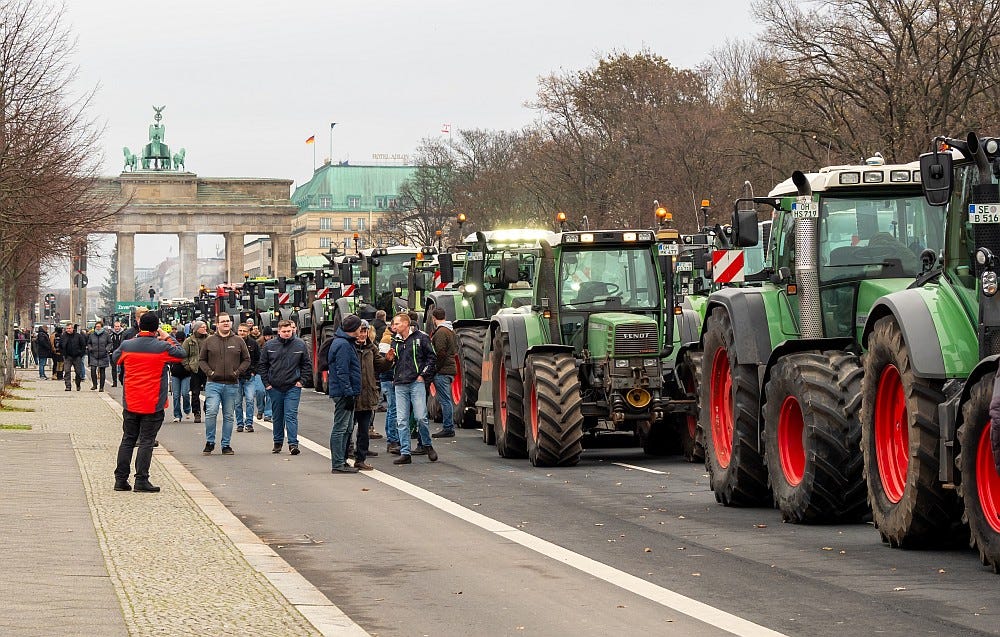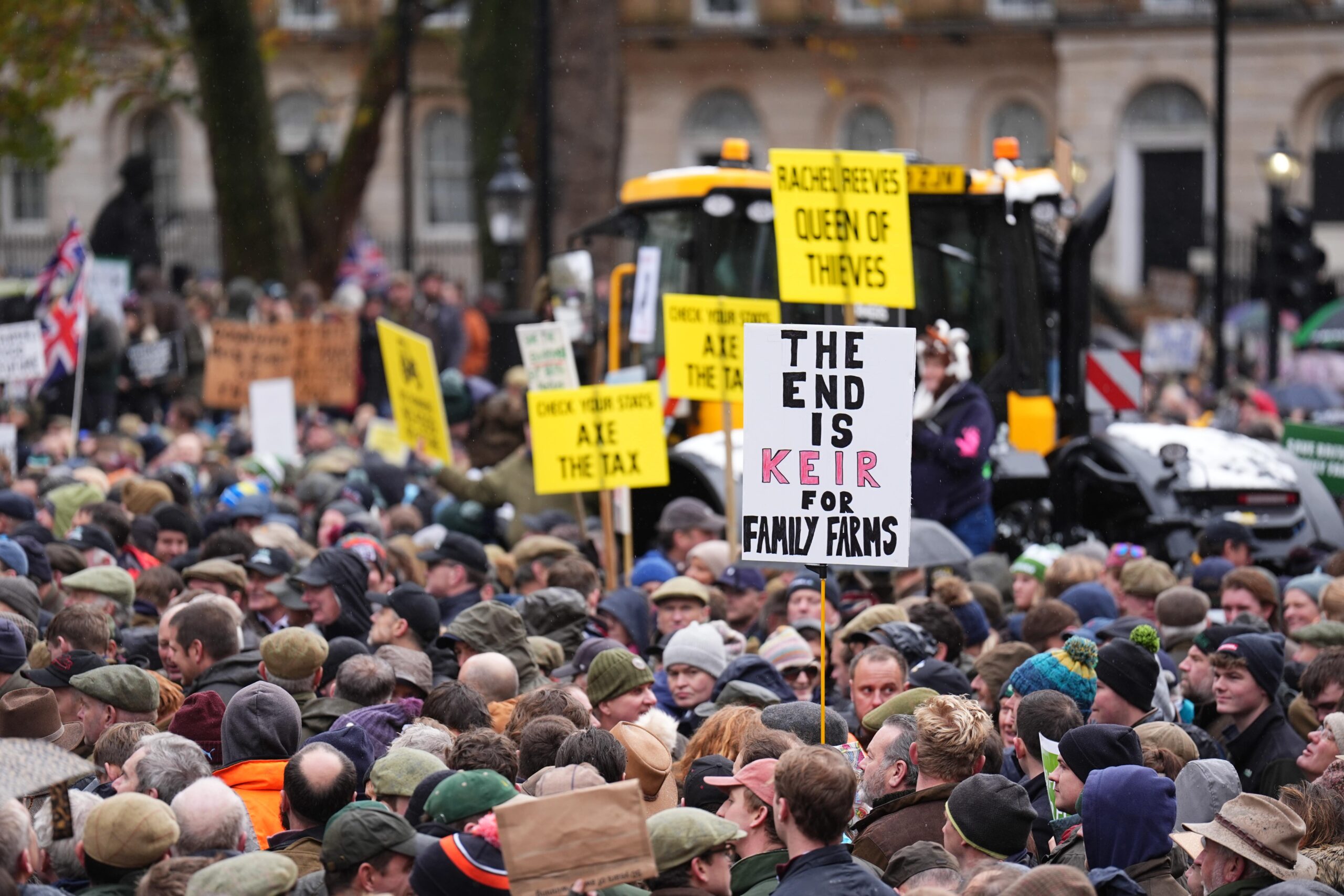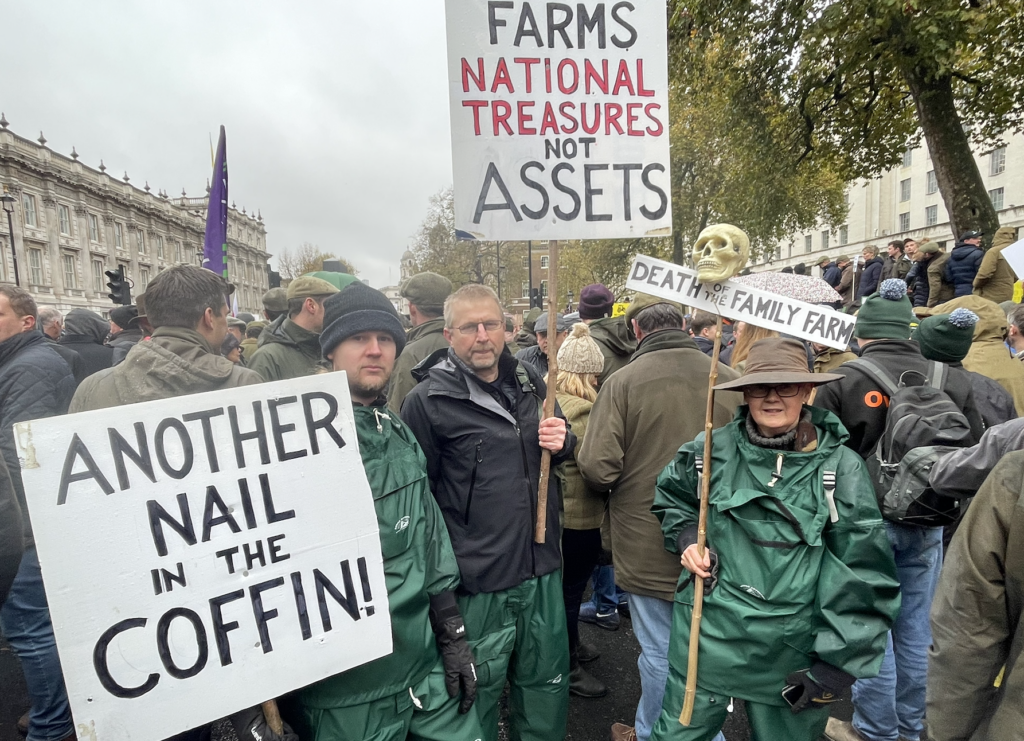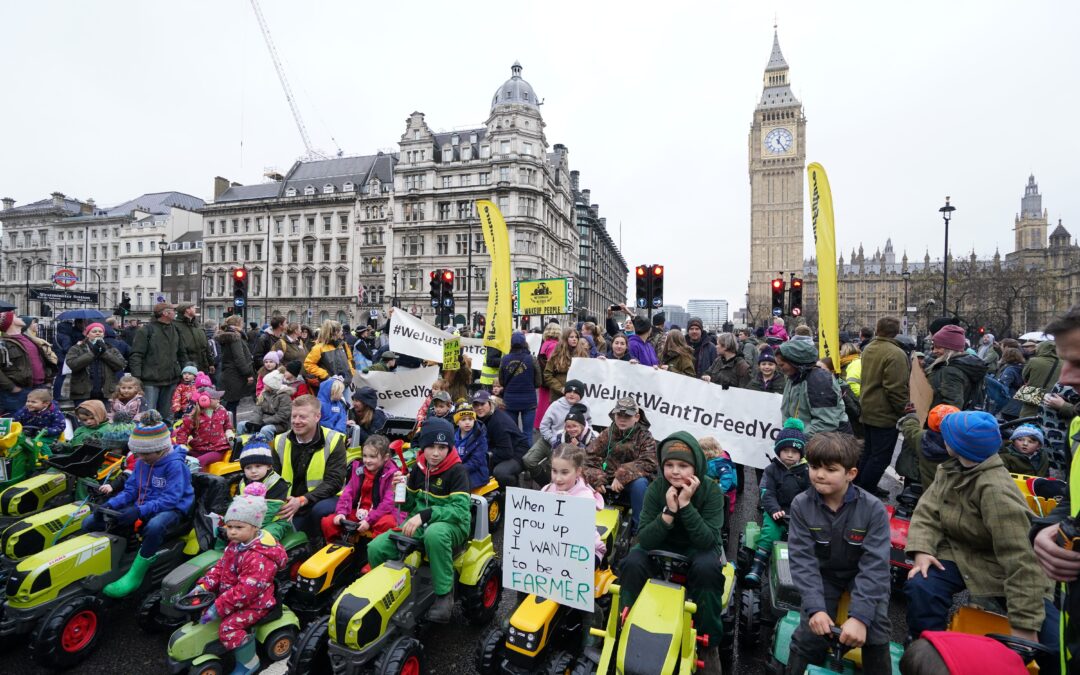On June 19, 2024, Westminster saw an extraordinary turnout as over 10,000 farmers from across the UK gathered to voice their concern about the changes to Agricultural Property Relief (APR) introduced in Chancellor Rachel Reeves’s autumn budget. Farmers arrived on foot, by train, and in convoys of tractors, with some traveling from as far as Cornwall and Scotland to protest. The sheer scale of the demonstration, organized by grassroots groups like Save British Farming and supported by the National Farmers Union (NFU), has thrust farming and food production to the forefront of national conversation.
Why Did Farmers Protest?
The government’s proposed reform of APR, which previously allowed agricultural assets like farmland to be passed down without inheritance tax could mean the death of the traditional family farm. The changes mean many family farms, often “asset-rich but cash-poor,” face tax burdens that could force land sales and business fragmentation. The NFU warned this policy threatens the viability of family farms, which are central to domestic food production and rural economies. NFU President Tom Bradshaw stated, “This reform misunderstands the nature of farming as a business and jeopardizes national food security”.
Farmers United
In addition to the 10,000-strong crowd of protesters, 100 tractors paraded through London, in a powerful show of the agriculture industry’s unity and resolve. Farmers and supporters carried placards with messages like “No Farms, No Food” and “Save British Farming”. Despite the scale of the demonstration, it remained peaceful and coordinated, emphasising collaboration with the public rather than disruption.
Liz Webster, founder of Save British Farming, emphasized the stakes: “Without urgent change, we risk losing British food security to lower-quality imports.”
Clive Bailye, a Staffordshire arable farmer and event organizer, noted that the unprecedented turnout underscored deep frustrations. “This is a fight for our future as farmers and as a nation,” he said.
Jeremy Clarkson expressed solidarity with farmers, highlighting frustrations over increasing costs, climate challenges, and tightening profit margins. He emphasized the need for fair treatment and support for the farming community.

Impact and Next Steps
The protest dominated headlines, social media and even the popular Mumsnet forum, sparking widespread discussions about food security and farming policy. Campaigners hope to force a government reconsideration of Agricultural Property Relief reforms and bolster support for British agriculture.
Rural trade associations like the Country Land and Business Association (CLA) have also called for clearer policies to protect farmers and rural communities.
Just a day later the government was forced to issue a defence of the changes to APR. In a joint statement, Chancellor of the Exchequer Rachel Reeves and Secretary of State for Environment, Food and Rural Affairs, Steve Reed said:
“Farmers are the backbone of Britain, and we recognise the strength of feeling expressed by farming and rural communities in recent weeks. We are steadfast in our commitment to Britain’s farming industry because food security is national security.
“It’s why we are investing £5 billion into farming over the next two years – the largest amount ever directed towards sustainable food production, rural economic growth and nature’s recovery in our country’s history.
“But with public services crumbling and a £22 billion fiscal hole that this Government inherited, we have taken difficult decisions.
“The reforms to Agricultural Property Relief ensure that wealthier estates and the most valuable farms pay their fair share to invest in our schools and health services that farmers and families in rural communities rely on”.
Farming is a Business
Critics of the changes to APR argue that policymakers overlook the unique nature of farming. Unlike other businesses, farmland often comprises a family’s primary asset, with profits reinvested into maintaining operations. The reforms could compel farmers to sell land to cover inheritance tax liabilities, disrupting the continuity of multi-generational businesses.
Smaller operations will lose their economies of scale and the cost of producing food will skyrocket. Simultaneously, the payback time on investments will become longer and discourage farmers from making the investments needed to improve their financial and environmental sustainability – and deliver more competitively priced food to consumers.
The tax, which makes it harder to make a profit from farming, would likely see agricultural land sold to bigger, more corporate farms in an upwards transfer of wealth or moved out of food production and into more profitable endeavours like hosting solar panels or housebuilding.
Less Choice for Consumers
Farm businesses are already surviving on marginal profits with food production frequently subsidised by other business ventures. “The 20% IHT on assets over £1 million will force some farms out of business and it will add significantly to the cost of production for those which remain. These are costs which will either be passed onto the consumer at the till or reduce the choice, quality and availability of many foods we all take for granted”, said Katie Tucker of Rural Policy Group.
The protest and national conversation around the “tractor tax” are raising awareness among consumers of how important British farming is to the country’s health, environment, economy and cultural identity. Recognising the value of agriculture is an important step in raising support to revise or reverse the proposed changes to agricultural property relief. Ultimately, a tax on farmers is a tax on food.

Explore More
The protest has inspired nationwide interest in agricultural policy. Here are 10 of the most-read articles from across the Internet:
It’s another kick in the teeth’: Farmers’ fury over inheritance tax changes – ITVX
What’s really behind the farmers’ protest (and it’s not just IHT) – The Telegraph
A way of life: farmers in Westminster express fears for their futures – The Guardian
Protesting farmers warn of ‘ticking time bomb’ – THE BBC
Thousands of farmers protest in London against tax changes – The FT
Farmers in London to protest ‘family farm tax raid’ – Farmers Weekly
Farmer protests kick off in London after ‘stab in the back’ budget – The Grocer
Thousands of farmers descend on Downing Street to protest against inheritance tax changes – Sky News
Final Thoughts
The Westminster rally has succeeded in putting British farming at the centre of political and public discourse. As the government faces mounting pressure to revise its policy, one thing is clear: farmers are united in their commitment to protecting the future of agriculture.
For more updates on the changes to Agricultural Property Relief, follow Rural Policy Group on X: @PolicyRural


